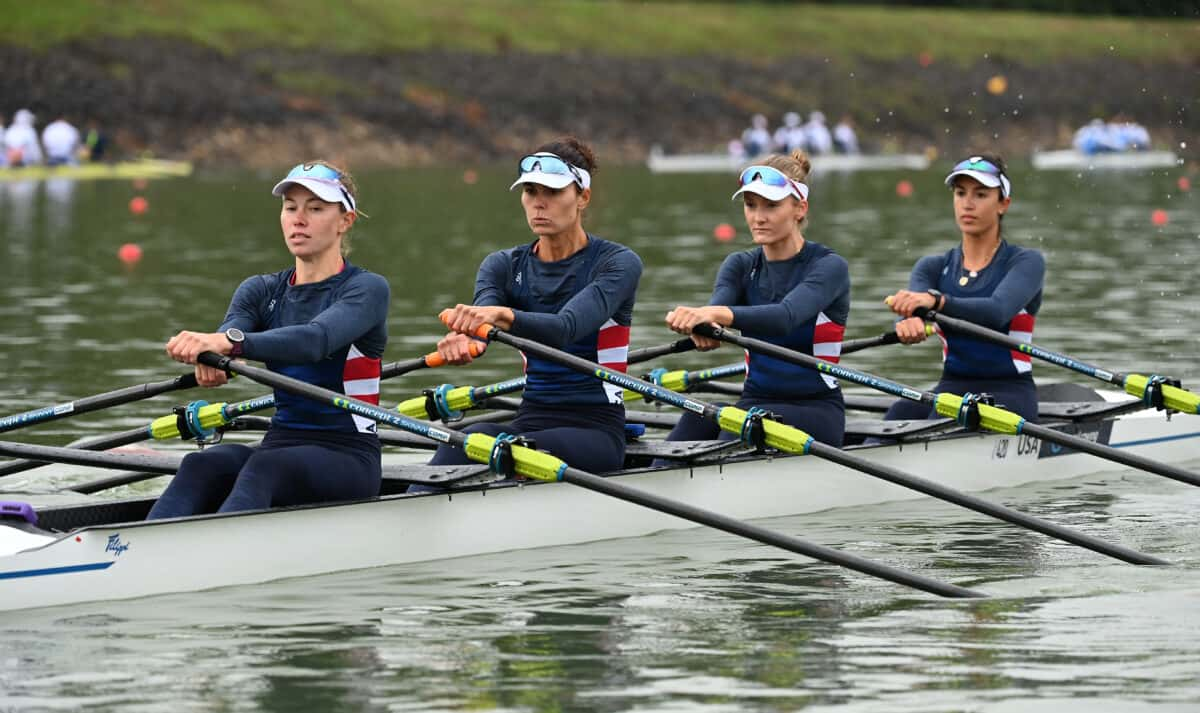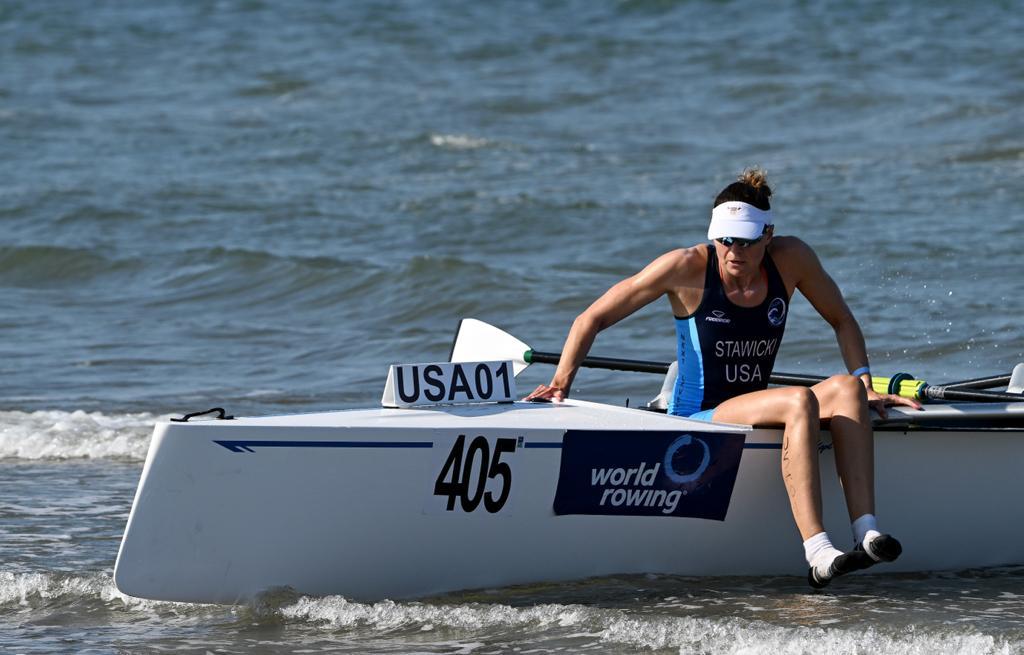
10 Jan 2024
Cara Stawicki: from flatwater World Champion to now competing in Coastal Rowing
World Rowing spoke to former World Champion and blogger Cara Stawicki about her experience rowing on flatwater and transitioning to Coastal Rowing.
Stawicki’s sporting career is marked through a series of changes. She started as an avid swimmer in high school, before starting rowing in 2001 at Lehigh University, USA, competing primarily in eights. “I loved the team aspect of rowing, in contrast to swimming. You get a real sense of accomplishment and celebration in both training and racing as a team of nine, chasing that collective sense of speed,” says Stawicki.
After four years of rowing in eights, Stawicki sculled for the first time, which felt like a huge change, as it was a lot more technical. “You think you know how to row a boat and then wow – a single – I didn’t know what I have been doing – I had to relearn the process, and it took a couple of years to just learn how to move a single.”
The process of reaching the heights of the US national team took many years, partly delayed by injuries, but her perseverance was rewarded, and in 2017, she earned her US vest as a lightweight. In 2019, a career highlight was obtained when she won the lightweight pairs with Margaret Bertasi in the World Rowing Championships in Linz-Ottensheim, Austria.
 Despite her formidable flatwater credentials, she has recently made another transition, with a focus on coastal rowing. Stawicki has written extensively about her experience via her blog, including her experience competing in the 2023 World Rowing Coastal Championships, where she confessed her performance felt “subpar.” Nevertheless, she was hooked and is “100 percent” intending to be on the starting line for the 2024 World Rowing Coastal Championships.
Despite her formidable flatwater credentials, she has recently made another transition, with a focus on coastal rowing. Stawicki has written extensively about her experience via her blog, including her experience competing in the 2023 World Rowing Coastal Championships, where she confessed her performance felt “subpar.” Nevertheless, she was hooked and is “100 percent” intending to be on the starting line for the 2024 World Rowing Coastal Championships.
Stawicki has been a quick defender of Coastal Rowing, bristling against any accusations of it being seen as a lesser discipline. “Coastal rowing could create a new and exciting opportunity. We should move away from the scarcity mindset, and coastal rowing, which is not new, should not be a perceived threat to flatwater rowing.”
Stawicki was also keen to point out how coastal rowing is not easier, “just different”. Indeed, in her blog, she also describes the importance of safety in an open water coastal environment with greater variable conditions. Stawicki’s first time rowing in the sea felt a little “scary”, but with experience, it now feels “much more fun”.
Echoing other coastal rowers, Stawicki describes how the need for adaptability turns coastal rowing into “a very athletic discipline, requiring arguably a more versatile athlete compared to flatwater, with a strength and agility component which lends itself well in coastal rowing.”
Alongside her training, Stawicki now also provides high-performance coaching under the name Be Brave High Performance, including for the increasingly large and active masters community. Her advice to beginners is to “connect with an athlete or coach with some experience in coastal rowing and with anything new, always ask lots of questions, speak up and have fun. This is the best way to get the peace of mind to go out and enjoy it.”
Stawicki sums up elegantly in her blog when comparing flat water and coastal rowing, “There is beauty in the work to achieve consistency in flatwater, the sense of effortless power and speed. There is [also] freedom when the open water takes the aim for consistency [and] the chase for perfection away. Both are compelling. Both pull my heart.”
We look forward to seeing Stawicki next on the coastal rowing circuit. You can follow her on Instagram at @carastawicki.

